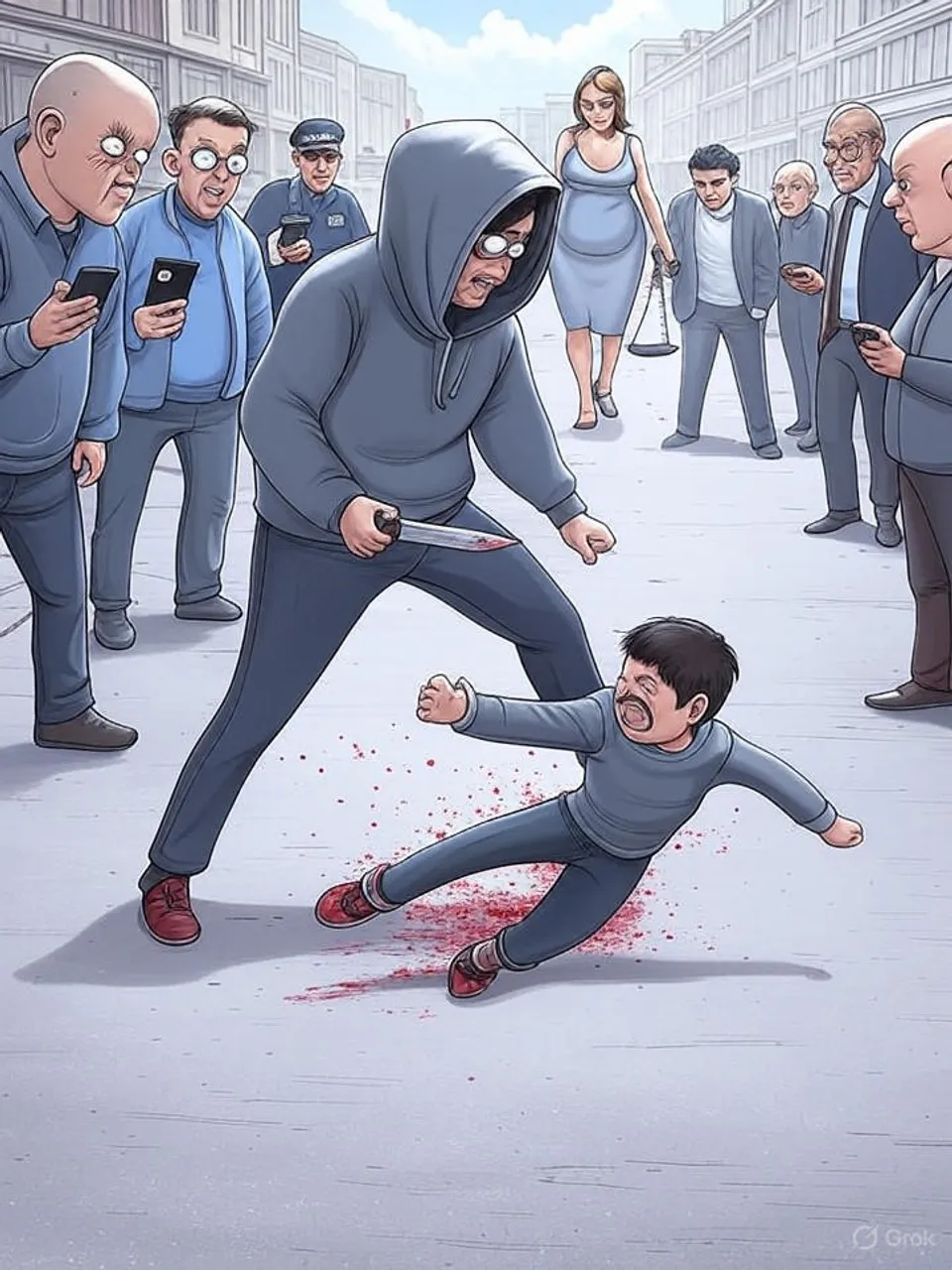Daylight Stab in Lewisham: Witnesses Watch, Justice Waits

20-year-old Messiah Robb's death highlights 14,000 annual knife offences and policing gaps
A fatal stabbing in broad daylight exposes London's unchecked knife crime, low clearance rates, and institutional failures that persist across governments, eroding public safety in working-class areas.
Messiah Robb, aged 20, died from stab wounds inflicted in broad daylight on Benin Street in Lewisham on October 28, 2025. Witnesses surrounded the scene near Hither Green Lane junction during afternoon rush hour, yet no arrests followed. Police statements emphasize support for the family and appeals for information, but the absence of immediate justice reveals a familiar paralysis in tackling urban violence.
Knife crime in London persists as a routine hazard. Official data from the Metropolitan Police show over 14,000 knife offences recorded in the year to September 2025, a 7% rise from the previous year. Young men like Robb, often from working-class districts, account for a disproportionate share of both victims and perpetrators.
Lewisham embodies the capital’s fractured underbelly. This southeast borough reports knife crime rates 20% above London’s average, linked to poverty levels where 25% of residents live below the poverty line. Decades of underinvestment in youth services and community policing have eroded local safeguards, turning streets into zones of unchecked aggression.
The Metropolitan Police’s response follows a scripted pattern. Detective Chief Inspector Craig Magee promises meticulous investigation and increased patrols, measures echoed after every high-profile stabbing. Yet, clearance rates for knife murders hover below 40%, per Home Office statistics, as resource strains—fewer officers per capita than in 2010—hinder follow-through.
This incident exposes accountability voids in law enforcement. No senior officer faces scrutiny for the systemic lapses that allow daylight attacks to go unpunished. Instead, the burden shifts to anonymous tip lines like Crimestoppers, which handled over 50,000 calls on violent crime in 2024 but led to convictions in under 10% of cases.
Broader social decay amplifies the risk. Nationally, youth violence correlates with stagnant social mobility: children in deprived areas like Lewisham face triple the chance of criminal involvement compared to affluent peers, according to the Sutton Trust. Governments of all stripes pledge interventions—stop-and-search expansions under Conservatives, community funds under Labour—but delivery falters, with funding cuts totaling £1.5 billion to youth services since 2010.
Institutional trust crumbles under such failures. Polling by Ipsos in 2025 reveals only 52% of Londoners feel safe walking alone at night, down from 68% in 2005. Families like Robb’s bear the cost: a mother’s statement of irreplaceable loss underscores how policy gaps translate into personal devastation.
The pattern transcends parties. Blair’s 1997 pledge to be “tough on crime” yielded ASBOs that masked rising violence; Cameron’s 2010 austerity slashed police budgets by 20%; Starmer’s 2024 administration vows renewal, yet Robb’s death arrives weeks into their term. Each era repeats the cycle: rhetoric without reform.
Economic pressures fuel the fire. With UK productivity flat since 2008 and real wages down 2% for low earners, desperation grips communities. Knife possession surges in tandem—seizures up 15% in 2025— as young people arm against perceived threats in neglected neighborhoods.
Policing’s evolution from community anchor to reactive force marks a key decline. In the 1990s, beat officers patrolled Lewisham proactively, fostering resident ties. Today, with 30,000 officers citywide against a 10 million population, responses prioritize major incidents, leaving minor escalations to fester.
This killing signals deeper civic erosion. Voter turnout in Lewisham dipped to 58% in the 2024 election, reflecting disillusionment with systems that fail to protect. When a 20-year-old dies amid witnesses who stay silent, it points to a social contract in tatters.
Messiah Robb’s death lays bare Britain’s urban unraveling. Knife crime endures not from isolated acts but from entrenched neglect across political cycles, hollowing out safety for the vulnerable. Ordinary citizens navigate streets where daylight offers no shield, a stark measure of national decay.
Commentary based on Man who died in Lewisham stabbing named at Mynewsdesk.